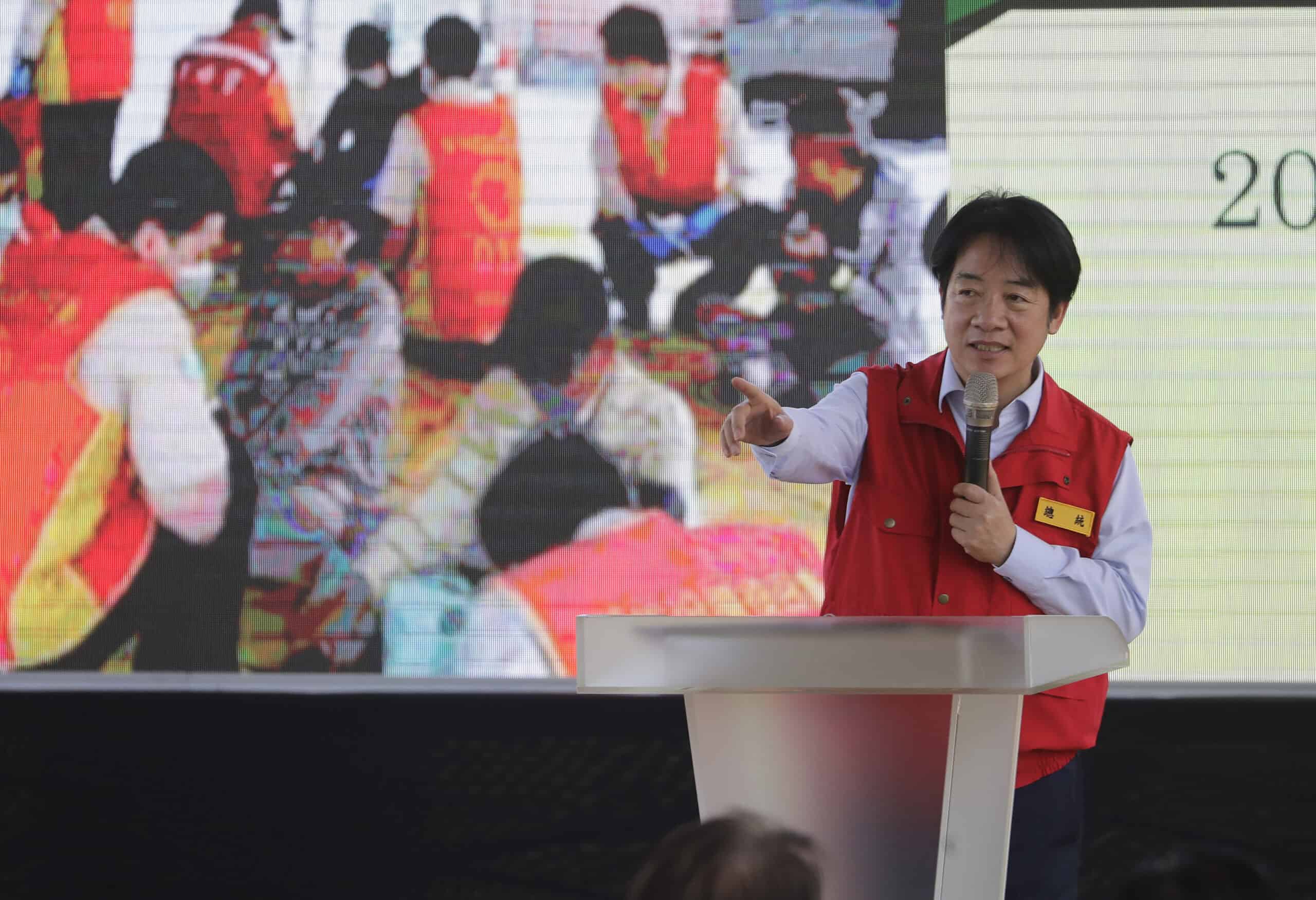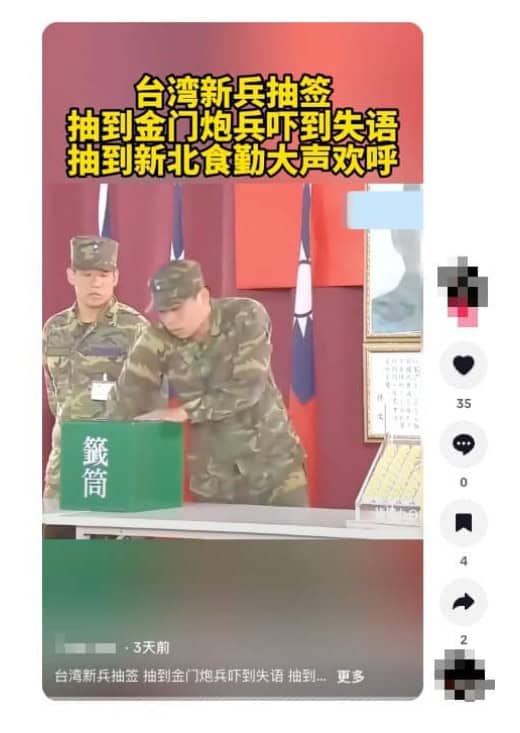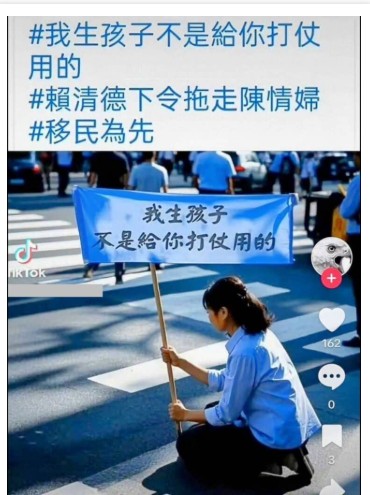
The first few months of 2025 were eventful for most countries in the world, including Taiwan. Internationally, Taiwan faced uncertainty following Trump’s inauguration as U.S. president. On the home front, several incidents have raised concerns about the rise in cognitive warfare and infiltration from China. In response to the growing number of spy cases involving active-duty and retired military personnel, the Taiwanese government proposed stringent measures. Unsurprisingly, Chinese propaganda and disinformation took advantage of these proposals to spin disinformation targeting the Taiwanese people.
Since March, several incidents concerning national security have raised alarms within Taiwanese society. According to the Taiwanese National Security Bureau, 64 people were prosecuted in 2024 for assisting China in conducting espionage in Taiwan, indicating a significant rise in espionage cases since 2021. Among those charged, 28 were still active-duty military members, and 15 were retired personnel. In addition to the infiltration of spies, several Chinese spouses living in Taiwan have consistently promoted rhetoric aligning with the Chinese Communist Party, declaring “No excuses are necessary for China to unite Taiwan by military force,” raising national security worries. Some of these Chinese spouses were deported to China in March and April. In light of escalating challenges of espionage and propaganda exploiting Taiwanese individuals or Chinese spouses, Taiwanese President Lai Ching-te called China a “foreign hostile force” and announced several measures, including a proposal to reinstate military trials, which had been suspended in 2014 following the unfortunate death of a young soldier (Note 1). Meanwhile, China has more frequently conducted military drills around Taiwan. After two large-scale military drills in May and October 2024, the Chinese military launched another exercise surrounding Taiwan on April 1, 2025.
As we have pointed out in previous analyses, disinformation pieces regarding Taiwanese military affairs often surge alongside news events and activities, such as military exercises from both sides, U.S. arms sales to Taiwan, or conflicts near Taiwanese waters or in the South China Sea. Several recurring themes have appeared in these disinformation pieces, including mocking the Taiwanese military as weak, exaggerating the strength of the Chinese military, presenting false witness claims that Chinese aircraft have flown over Taiwanese territory, asserting that the U.S. would abandon Taiwan or sell shoddy weapons to Taiwan, and emphasizing that the Taiwanese military would disturb or even endanger civilians’ lives.
Over the past months, we also saw the prevalence of disinformation about military affairs. Overall, themes of these false claims concerning Taiwan’s national security included
- The Taiwanese military is weak.
- The Taiwanese government has started drafting civilians, including women. Those who refuse to be drafted will face severe punishments. Mothers are crying for their sons who are being drafted.
- Videos or messages purport to show that the Chinese military has approached or advanced into Taiwan’s territory. The Chinese government has made an official announcement to prevent foreign military forces from using the Taiwan Strait.
- The U.S. suspended the sale of aircraft to Taiwan.
- The Taiwanese government used civilian facilities for military exercises, risking civilians’ safety.
Some of these themes have persisted for years and frequently reappeared as new stories. Take the theme, “the Taiwanese military is weak,” as an example. Like previous disinformation pieces, the stories from 2025 still spotlighted the clumsiness of Taiwanese soldiers or the incompetence of Taiwanese patrol vessels. Between February and April, the Taiwan FactCheck Centre, Asia Fact Check Lab, and MyGoPen identified six prevalent false claims of this theme, all presented as videos. The creators of these false pieces repurposed video clips from Taiwanese TV shows or commercials, recontextualizing them and altering their original meanings. For example, one false story asserted that “Some Taiwanese new recruits were too frightened to speak when assigned to the Kinmen artillery, but others cheered loudly upon their assignment to serve in New Taipei food service.” The video contained in this claim sought to demonstrate Taiwanese recruits’ fear of serving in possible combat zones with China. However, it did not depict an actual military assignment but rather a segment from the 2010 Taiwanese television drama “Rookie’s Diary.”
Interestingly, while many of these six false claims used clips from Taiwanese TV shows, news segments, or advertisements, their producers or first few disseminators can be traced back to accounts on Chinese platforms like Weibo, Douyin, or X. These videos, featuring titles in Simplified Chinese, were subsequently distributed on social media platforms such as Facebook and TikTok. For instance, the incorrect post employing the “Rookie’s Diary” footage was initially published by a Weibo account following President Lai’s remarks about reinstating military service trials.

It’s worth noting that a number of false claims circulating from February to April emerged following President Lai’s announcement regarding the military trial proposal. Among these false claims, some stories reflected a recurring narrative asserting that the Taiwanese government has begun drafting civilians for military service, while others emphasized harsh penalties for those who refuse enlistment or for minor violations. Additionally, one false statement distorted a real incident, trying to showcase a Taiwanese mother’s distress over the military policy. All those false narratives seem to stir fear about military service by taking advantage of the possibility that military trials might be reinstated.
In contrast to the claims focusing on the theme “the Taiwanese military is weak,” which originated from Chinese platforms, most of the false information about the military draft, the harsh punishments on military personnel, and a mother’s distress over her son being drafted to serve in the military, were mostly promoted by Taiwanese influencers and circulated on social media frequented by Taiwanese. In other words, among recent false claims related to military issues, narratives emerging with news events appeared to be driven by local influencers in Taiwan, whereas the recurring old themes found in false claims generally stemmed from Chinese platforms.
For example, the incorrect claim that “men under 50 years old who fail to report to reservists’ training (Note 2) will be tried by a military court” was promoted by Julian Kuo, a former Taiwanese legislator and current political commentator who has his own YouTube channel and frequently makes appearances on TV talk shows. Kuo’s incorrect remark was subsequently shared on Facebook among Taiwanese users. However, the fact is that reservists are still civilians. Those who fail to report to reservists’ training, which is mandated by Taiwanese laws, are punished under a law applicable to civilians rather than the laws for military members. Moreover, the Constitution protects civilians from being tried by a military court. Alongside Kuo, two well-known political figures also spread false claims on their Facebook fan pages. Chan Chiang-chun, a city councillor from the Chinese Nationalist Party (Kuomintang), asserted that military laws are extremely harsh; active-duty personnel can even face punishment for minor infractions, such as clenching fists during a squad leader’s lecture. Chan further contended that military laws and trials are outdated for the modern Taiwanese military, arguing that today’s young men in Taiwan are particularly rebellious. He claimed the enforcement of these strict laws could result in fatalities, like the case that led to the suspension of military trials in 2013. However, Chan’s assertions were based on incorrect information. The examples he provided do not qualify as violations under Taiwanese military laws, and he also inflated the punishments. In the meantime, Alex Tsai, a former legislator, took advantage of a mother’s plea to promote better military treatment for soldiers, inaccurately portraying the situation as “a mother was upset for sending her son to the battlefield.”


Notably, some Taiwanese micro-influencers on TikTok were simultaneously promoting the false claim that “From now on, Taiwanese men and women under 50 years old will be mandated to serve in the military.” These influencers typically created lifestyle videos and seldom made comments on current events. For example, one of them was a realtor who mainly produced videos touring properties, while another was a hairdresser who primarily showed followers how to maintain good hairstyles. Interestingly, these influencers posted the same fabricated message about military service shortly after the proposal to reinstate military trials was discussed in Taiwanese society.
The surge of misinformation during the military-related news event from February to April highlights a disinformation ecosystem. Although traditional disinformation themes persist on Chinese social media and are shared on popular platforms in Taiwan, local influencers, including prominent politicians and micro-influencers who generally steer clear of political topics, are now participating to amplify false information related to current events in Taiwan. More troubling is that Taiwanese people may relate more to local influencers’ statements and rhetoric. This ecosystem warrants closer examination.
Wei-Ping Li is a research fellow at the Taiwan FactCheck Center.
Note 1: Taiwan still has the Criminal Code of the Armed Forces, the law of Military trials, and military judges; however, this system is currently only applied during wartime.
Note 2: According to the Act of the Military Service System, Taiwanese male citizens are subject to compulsory military service from age 18 to 36. Currently, the service includes one year of active duty in the armed forces. Upon completion of their active duty, male citizens transition into the military reserve force.
